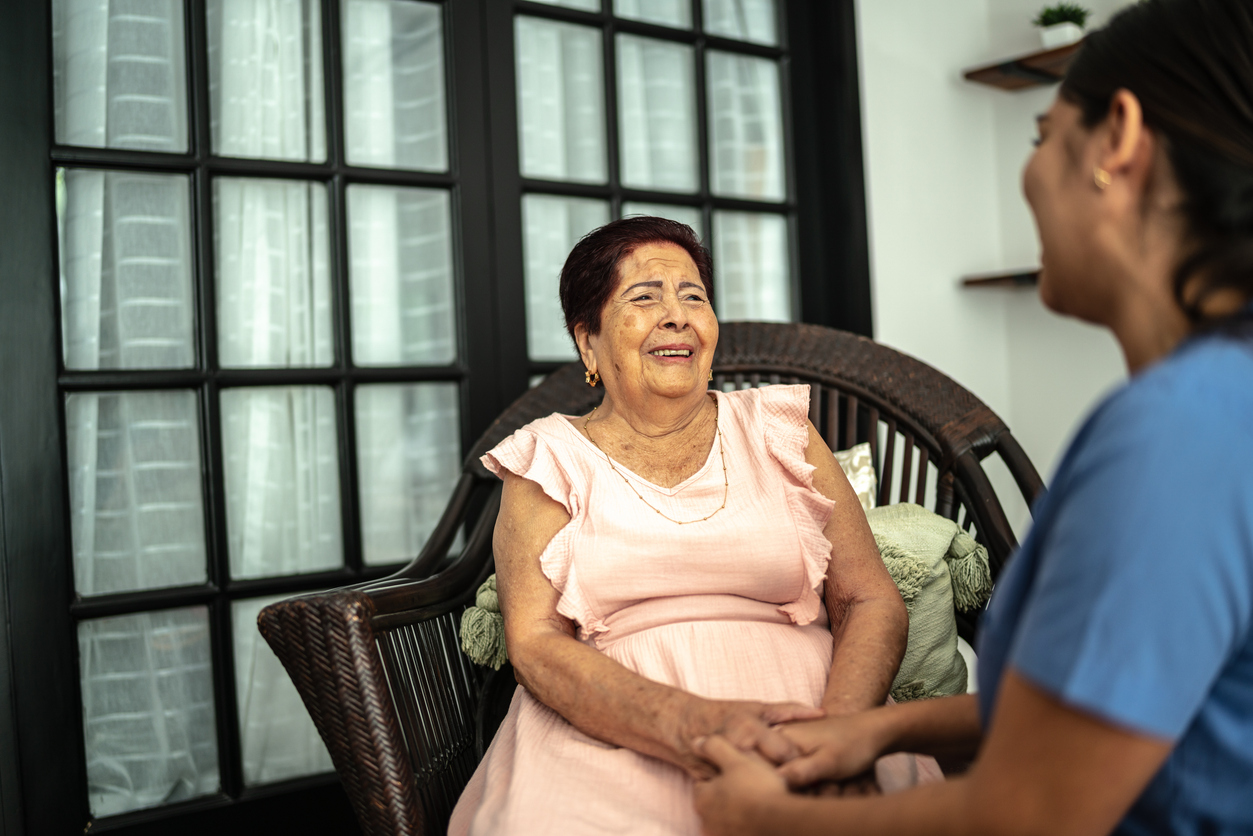
5 Elderly Loneliness Solutions to Help Reduce Isolation and Depression
Do you have a senior loved one that lives alone? While frequent calls and check-ins are beneficial, they may not be enough to keep them from feeling lonesome or isolated.
According to the CDC, there is a difference between loneliness and social isolation. Someone can feel lonely even when they have some social interaction. However, social isolation occurs when an individual has very few social connections ― if any.
But don’t fret! Learn more about how companion care and other elderly loneliness solutions can help reduce senior isolation and depression in your loved one.
Understanding Loneliness in Seniors
<h2> Understanding Loneliness in Seniors </h2>
In a report from the National Academies of Sciences, Engineering, and Medicine, over one-third of adults aged 45 and older experience loneliness, with nearly one-quarter of those aged 65 and older being socially isolated. Senior isolation is caused by more than just living alone, other factors include loss of loved ones, mobility issues, chronic illness, hearing loss, and reduced social interactions.
Isolated individuals are also at higher risk of health issues including:
- Loneliness has been found to increase rates of depression, anxiety, and suicide.
- Comparable to the risks associated with smoking, obesity, and too little physical activity, social isolation can greatly increase the risk of premature death.
- Social isolation was linked to a 50% higher risk of dementia.
- A lack of social relationships can lead to a higher risk of heart disease and stroke.
- Among heart failure patients, loneliness is linked to an increased risk of hospitalization, emergency room visits, and death.
It’s important to recognize loneliness and isolation in seniors before it becomes a bigger health concern. Fortunately, there are a number of senior loneliness solutions to consider for your loved one.
Five Elderly Loneliness Solutions to Try
Help combat senior isolation, loneliness, and depression through the following tactics:
- Engaging activities and hobbies: Hobbies and activities help maintain cognitive function and physical health while providing joy and purpose. Whether your loved one likes gardening, crafting, or participating in book clubs, these activities ensure a fun and stimulating routine.
- Regular visits from friends and family: Consistent and meaningful interactions create a strong support network and enhance your loved one’s emotional well-being. Set a schedule for visits so your loved one feels connected to their social circle.
- Community involvement: Getting involved with local community events and groups is an excellent way for seniors to stay active, form a sense of belonging, and remain socially connected. Many communities offer senior-friendly programs including exercise classes, social clubs, and volunteer opportunities.
- Companion care: Bring in the experts! Companion care services – like those provided by CareBuilders at Home – offer social interaction and emotional support for seniors, helping to reduce any feelings of loneliness and isolation.
- Virtual care: In the age of technology, keeping your loved one connected to their friends and family is even easier. At CareBuilders at Home, we have our innovative platform that allows seniors ― through their TV and universal voice-activated remote ― to virtually visit with their social circle and their CareBuilders at Home caregiver.
Keep in mind, you don’t have to overwhelm yourself by trying everything listed above. Incorporating even one strategy into your loved one’s routine can help them lead more fulfilling and joyful lives.
Let Us Help
For nearly a decade, CareBuilders at Home has been offering seniors a full range of services, including personal care, companion care, specialized care, brain health and fitness, and our virtual caregiver program. Whether your loved one needs hourly care, overnight service, live-in help*, or 24/7 care, our team can create a plan tailored to your specific needs.
We know how challenging aging in place can be. But we also understand how much seniors want to live at home. That’s why we’re here to help. To learn more about how we can assist you and your family, contact us today.







